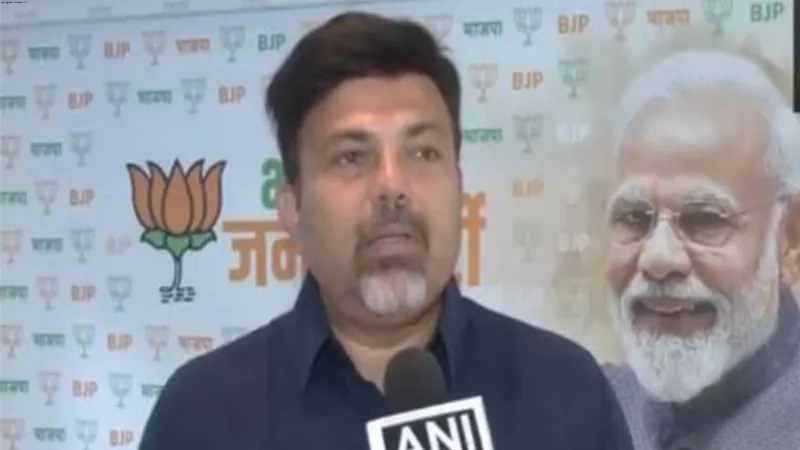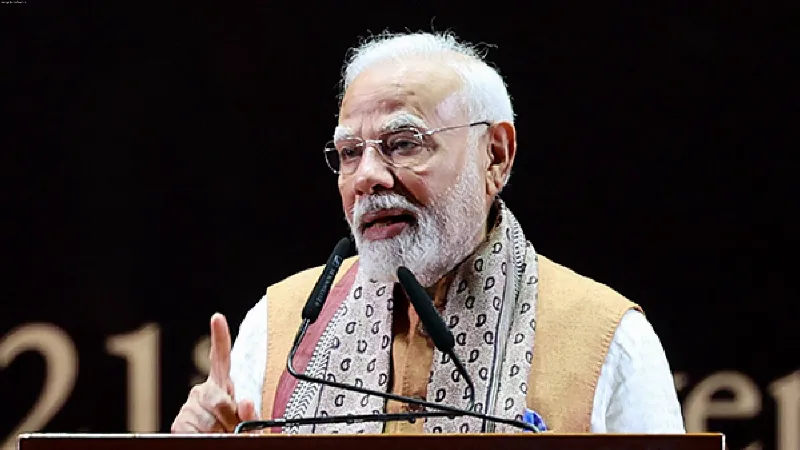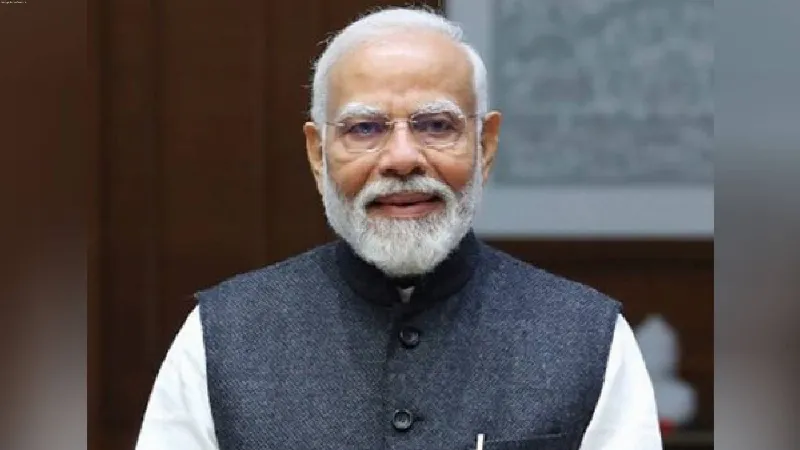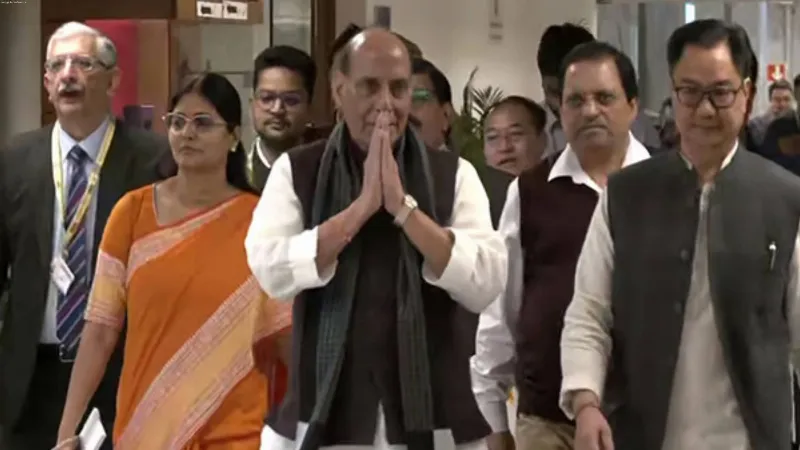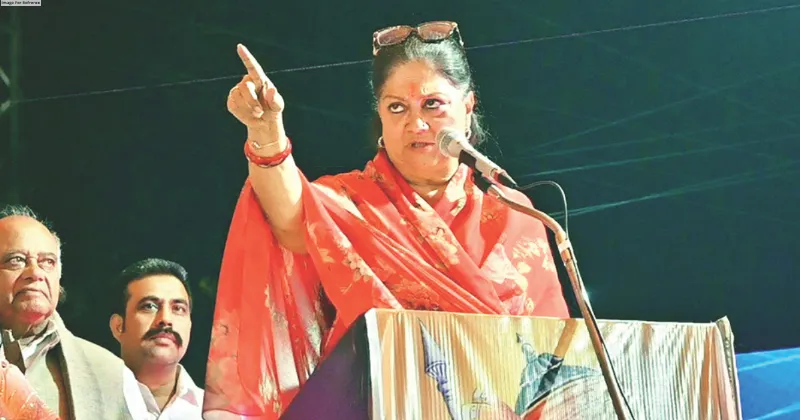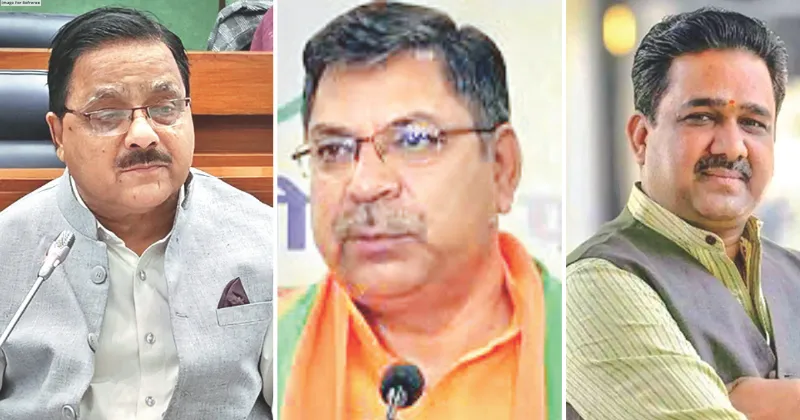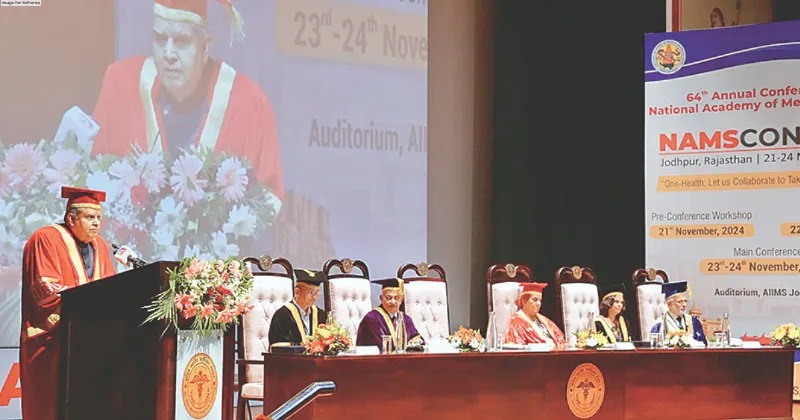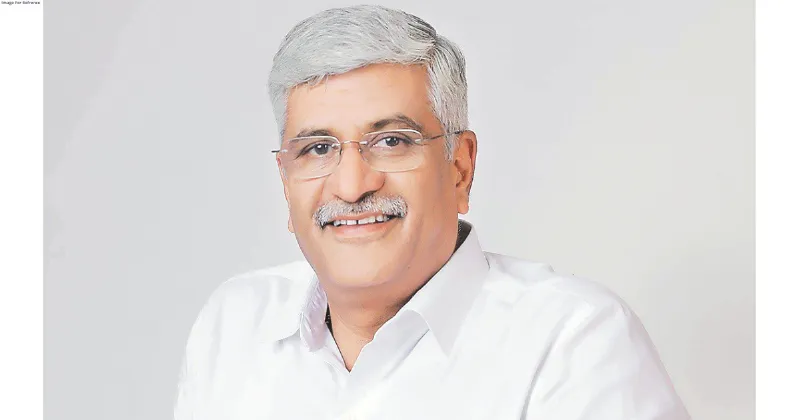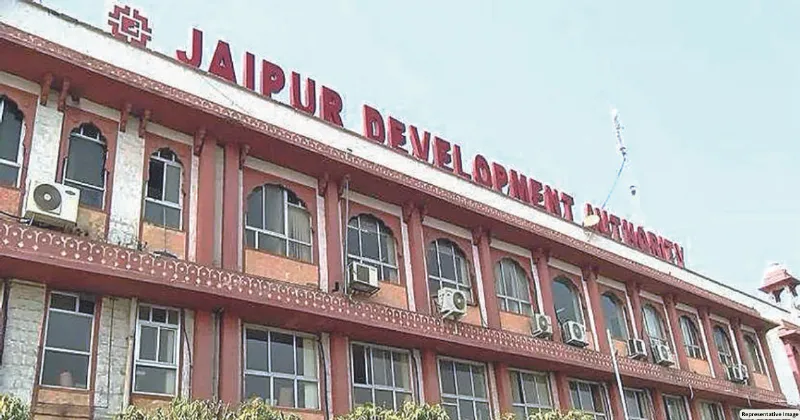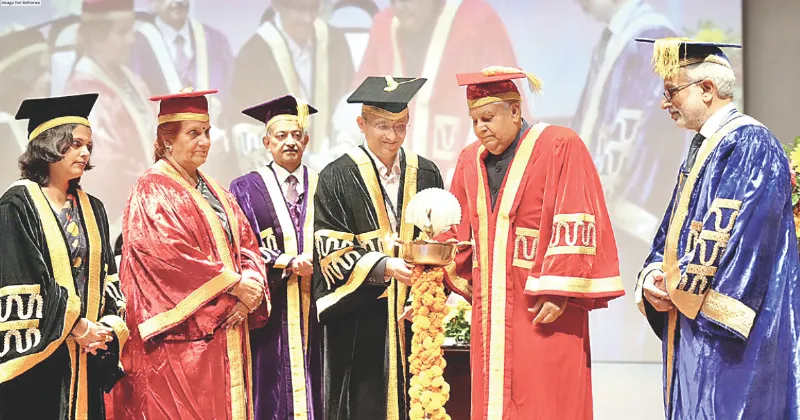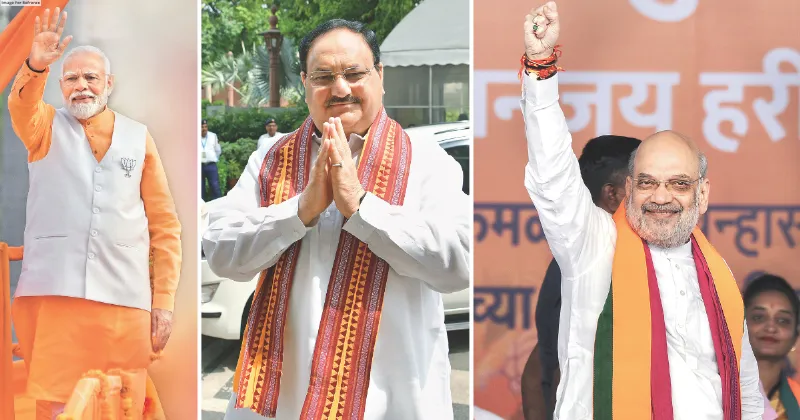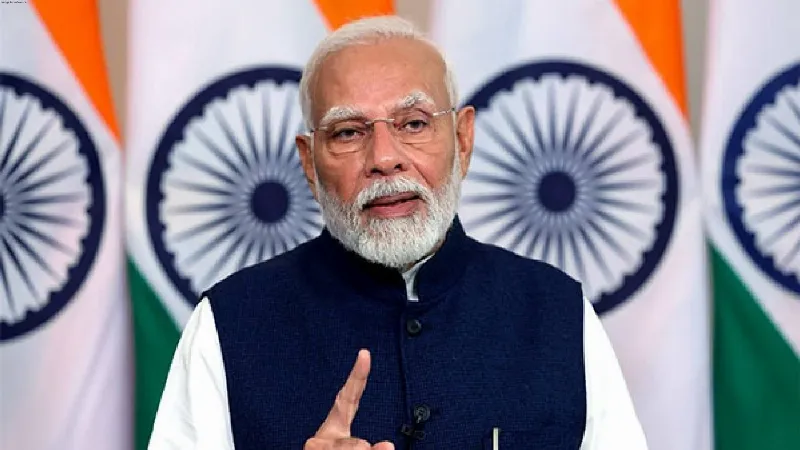Latest News
Kshatriya Yuvak Sangh is working to restore the old glory of Kshatriya character and moral in Rajput community: Bhagwan Singh Rolsahabsar

In a candid conversation with Dr Jagdeesh Chandra, CEO and Editor-in-Chief, Bharat24-Vision of New India and CMD and Editor-in-Chief, First India News and First India, Kshatriya Yuvak Sangh's Bhagwan Singh Rolsahabsar dwells upon the humble beginnings of the organisation he dedicated his entire life to, the thought behind its formation and its goals for the Rajput community, how it chooses to remain apolitical in an increasingly political world and how he was impressed by the characters of Mohan Bhagwat and Narendra Modi. Excerpts...
- How was Tan Singh ji’s leadership?
Bhagwan Singh Rolsahabsar: He was a societal leader and it was by coincidence that he became a political leader. People made him contest and he became the Chairman of Nagar Palika. Then when the elections happened in 1952, he was again forced to contest by the people and he won. He was not too inclined to electoral politics, but if one has to work in the society, then obviously, politics is also a subject on which one could work.
- So when did you first come in touch with him?
In 1961. I was a student then.
- And you did all your studies from Churu?
No. I studied at various places like Fatehpur, Ramgarh, Churu and Jaipur. I have studied till BA and since by then, I had got connected with Tan Singhji, I fully devoted my towards the works of the Kshatriya Yuvak Sangh.
- Did you never feel like working a 9 to 5 type job?
I did try that but could not find any job. Now I look back and think that this too was a coincidence. If I would have gotten a job, I would have got entangled in it.
- In the years that you have given to the community service, which are the major works that you did?
I was with Tan Singhji and whatever work he used to pick up, I used to give my effort in that. I did not do anything separately. In 1979, he passed away. Prior to him was Ayuvan Singh ji, then Tan Singh ji was again appointed in the Sangh to lead it and thereafter came Narayan Singh ji after Tan Singhji’s death. In 1989, Narayan Singhji passed away and I was handed the responsibility of Sangh. As a ‘Karyakarta,’ I had never thought that I would be given this responsibility since I had always thought that I would work as a worker.
- Since you were a social worker, did you ever get to meet Bhairon Singhji (former CM of Rajasthan)?
At a much later stage. We had celebrated the golden jubilee of Kshatriya Yuvak Sangh and our team had gone to invite him for the programme, but he was going out of the state. Later when he became Vice-President, we were able to connect with him because I had undergone some treatment at AIIMS New Delhi and it was then that I used to frequent his house. He had a great personality.
- How did you find him as a politician and a Chief Minister of Rajasthan?
As a CM, I consider him successful because he brought new schemes and policies, because earlier government were moving about on the line towed by previous governments. He brought the Antyodaya Yojna. He gave relief to farmers through tax exemptions. Then he provided 50 percent reservations to women. There were several such new and exemplary schemes that he introduced.
- What role does the Sangh Shakti play?
Sangh Shakti is the mouthpiece of Kshatriya Yuvak Sangh. Earlier, we had our main office in Jodhpur but later, we shifted base to Jaipur. People know us more by the name of Sangh Shakti and not by Kshatriya Yuvak Sangh.
- You have some sort of set up of Sangh Shakti in Barmer also?
Not of Sangh Shakti, that is a monthly magazine. Rather we have our regional set ups everywhere. We have made various social institutions. For example, in Jaipur, it is under the name Sangh Shakti Prakashan Pranyas and it does its work. In Jodhpur, we have Kshatriya Seva Sansthan. Similarly in Barmer, we have Bhartiya Gramya Alokyan. Likewise, we have our set up by different names in cities, but the work is the same. We did not get it registered because there are several governmental hurdles. For example, RSS too had targeted us since our name also has the word ‘Sangh’ in it and to avert any sort of ban on the organisation owing to the use of the word ‘Sangh,’ we did not register it.
- So is there any coordination between the RSS and Kshatriya Yuvak Sangh?
There are handful of similarities. When in 1944, the Kshatriya Yuvak Sangh was established, Tan Singhji did not have such grand designs for Kshatriya Yuvak Sangh. But when he went to Nagpur for his studies, he came in contact with the heads of various organisations. He met Golwalkar ji and spoke at length with him on various issues. He told Golwarkar ji that he liked how the RSS worked. So in turn, the daily chores like daily shakha, organising camps and regular practice which develop the ‘sanskaar’ in a person are in Kshatriya Yuvak Sangh too. Apart from that, I do not think there is a major difference. We keep on meeting them. Recently Sangh Pramukh Mohan Bhagwat had come to our place and they called me to a few of their camps.
- What is your take on Mohan Bhagwat?
He is a good man. I am impressed by him. He is dedicated towards RSS and society. He is cordial. When he was not the Sangh Pramukh, his interactions with people who don’t belong to the Sangh were cordial. Then he started meetings of well respected people of various cities and I too was invited by them.
- So what work does the Kshatriya Yuvak Sangh does for the youth?
All our efforts are focussed on the ‘Yuvak’ of today. The name itself says that we focus on development of boys and their character. It was in 1994 that girls and women were also included in the Sangh’s camps. For them also, shakhas and camps are organised on the same lines as for the boys and men. Tan Singhji was a youngster when he started Kshatriya Yuvak Sangh with the thought that the young men of the nation can do something for the nation and thus prior to independence, it was established. Our nation has been under foreign yoke for so many years and after independence, will we have a generation of people that would work for nation building. For thousands of years, Kshatriyas ruled in what is today called India. There was a time when their character and ‘Sanskaar’ were ideal. But during foreign rule, there was a certain downfall in all the Kshatriya aspects. So, how can we uplift to those levels of personal character and morals, with this thought Kshatriya Yuvak Sangh was established.
- So does Kshatriya Yuvak Sangh operate beyond Rajasthan?
Yes. We have a sizeable presence in Gujarat. And apart from that, we operate in Madhya Pradesh, Haryana and Uttar Pradesh also. We visit all states, but do not operate specifically in all states.
- You talked about Gujarat. Did you ever get to meet Narendra Modi?
Yes. Our Gurumaharaj Agranand ji, who has written the Yatharth Geeta, ordered me saying that Narendra Modi is a fearless man, so he should include this in school curriculum. So, I went to meet Narendra Modi with this message. We met and he was extremely happy. He said that he too wants to include this but several hurdles fall before such a move and questions would be raised that ‘The Quran’ should also be started along with other books. So, we will come on those lines slowly.
- How did you feel when you met him for the first time?
Members of his cabinet used to frequent our establishment. A few of them were our ‘Swayamsevaks’ too. And they introduced me to Narendra Modi. They had already told Modi about me and why I wanted to meet him. He was also told about Tan Singhji. His reaction was that we are working on the same lines as RSS.
- You met him when he was CM of Gujarat, did you ever feel that this man would become the Prime Minister one day?
No, I did not think so, because USA was extremely opposed to him and these days, elections can be influenced by people sitting abroad too. But, through his character, he ended that opposition and today he holds a grand personality.
- How do you, as a citizen, see Narendra Modi, the Prime Minister?
As a citizen, I had heard that he was RSS Pracharak so definitely he must have been a good human. Prior to this, I met him once and had the occasional meetings in weddings and social functions when he used to come and people used to introduce me to him. Apart from that, I never had much meets with him. I do like his character.
- When we talk about Narendra Modi, we talk about Amit Shah too. What is your take on the abrogation of Article 370?
I do not read about politics much and consequently do not know much about it. But from the little that I have read in papers, or heard about in the news, that gave me the impression that the atmosphere in the country has become better. The differences between communities have been lowered. As far as opposition is concerned, when one works in the society, people oppose.
- The Kshatriya Yuvak Sangh is not in politics, but which political party would you say its ideology is closest to?
We got a chance to work in the Rajput community and to develop and address the various issues faced by the community. We never had any political inkling, do not have so today also. Later when Vasundhara Raje came, she urged that we should take everyone along. I remember that former PM Atal Bihari Vajpayee had come to Jaipur and said that fourteen percent reservation would be given to everyone other than Rajputs and Brahmins. And they too are walking on the same lines.
- Is reservation an issue on Rajput community?
I saw that Modiji has done our work with EWS reservation. And that was further simplified by Ashok Gehlotji. There were some hurdles and we met CM Gehlot, hearing which he simplified it. We have approached the Central government too, but perhaps, there are a few hurdles and thus, it has not been simplified from that end. So, those who want to work in the centre or the employees of Central government, are not getting that benefit.

